Sustainable packaging: how the UK is becoming a world leader
- Sustainability
- 5 Min Read
Packaging manufacturing is a major contributor to the UK GDP, generating annual sales of around £11 billion and employing a workforce of approximately 85,000 people[1].
However, with the BBC’s Blue Planet II documentary highlighting the sector’s extensive environmental impact, it is facing enormous pressure from both the government and the public to innovate and change.
The documentary revealed the devastating effect of single-use plastics on the planet, with an estimated eight million tonnes entering the ocean each year[2], and consumers are now far more aware of the impact that their purchasing decisions are having on the environment and the future of earth. YouGov[3] data reports that a third (33%) of Brits now make a concerted effort to buy fewer goods that have packaging that can’t be fully recycled. With such a change in purchasing behaviour, companies must innovate to avoid losing their market share.
In 2018, the UK took steps to become a world leader in sustainable packaging. With an investment of £60 million, the government has called on innovators to develop packaging which will reduce the impact harmful plastics are having on the environment. Last summer, this investment was bolstered by an announcement[4] that the private sector is expected to add £149 million, helping the country to set an example to the rest of the world.
Here, we run through a selection of the innovative companies that are helping the country to achieve this aim.
Increasing shelf life, reducing waste
Packaging directly contributes to two of the major environmental issues currently dominating the nation’s consciousness: the quantity of single-use plastics and the amount of waste in landfill.
Over two thirds (67%) of plastic waste[5] in the UK comes from packaging and such material can take up to 1,000 years[6] to biodegrade. Around five million tonnes of plastic is sent to UK landfill sites each year[7], and two thirds (67%) of this is packaging. Landfill pollutes the air and can be extremely detrimental to local ecosystems.
An innovative approach to packaging
One company which is tackling both issues is CuanTec, a biotech company based in Scotland. Its innovative approach to packaging involves extracting waste from fisheries to obtain the natural biopolymer Chitin. It then harnesses biological processes to make it suitable for over 3,000 industrial uses, including compostable, antimicrobial food packaging.
CuanTec’s packaging not only reduces the nation’s reliance on plastic, but by utilising compostable materials, it means that they don’t sit in landfill for as long. An added benefit of this innovation is that it improves the shelf life of produce, especially seafood. Consequently, it also contributes to efforts to reduce food waste, with the UK currently producing nearly two million tonnes annually[8].
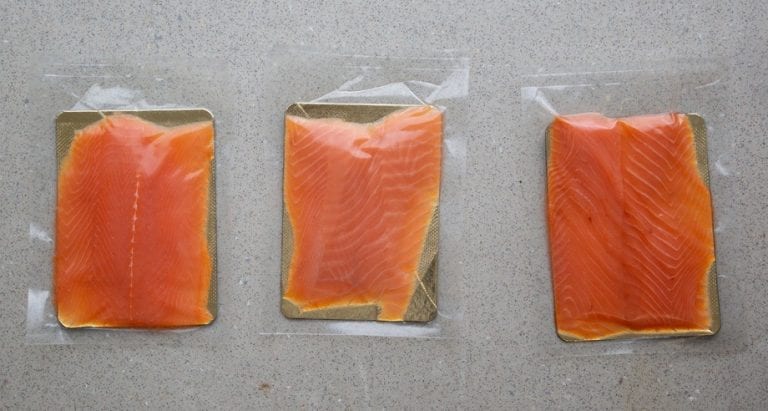
Smart packaging labels
Another packaging innovation helping to tackle food waste is smart labelling, as developed by companies like Insignia Technologies, based in Lanarkshire, Scotland.
Insignia’s award-winning intelligent labels can be attached to food products and feature patented inks and materials which can detect changes in carbon dioxide and temperature. Such data is fed into colour-changing labels that inform consumers about any loss of freshness or incidents where the item has been stored at an incorrect temperature. It is a far more accurate method of telling consumers whether food is still OK to eat than traditional ‘best before’ dates, which often lead to people throwing produce away unnecessarily.
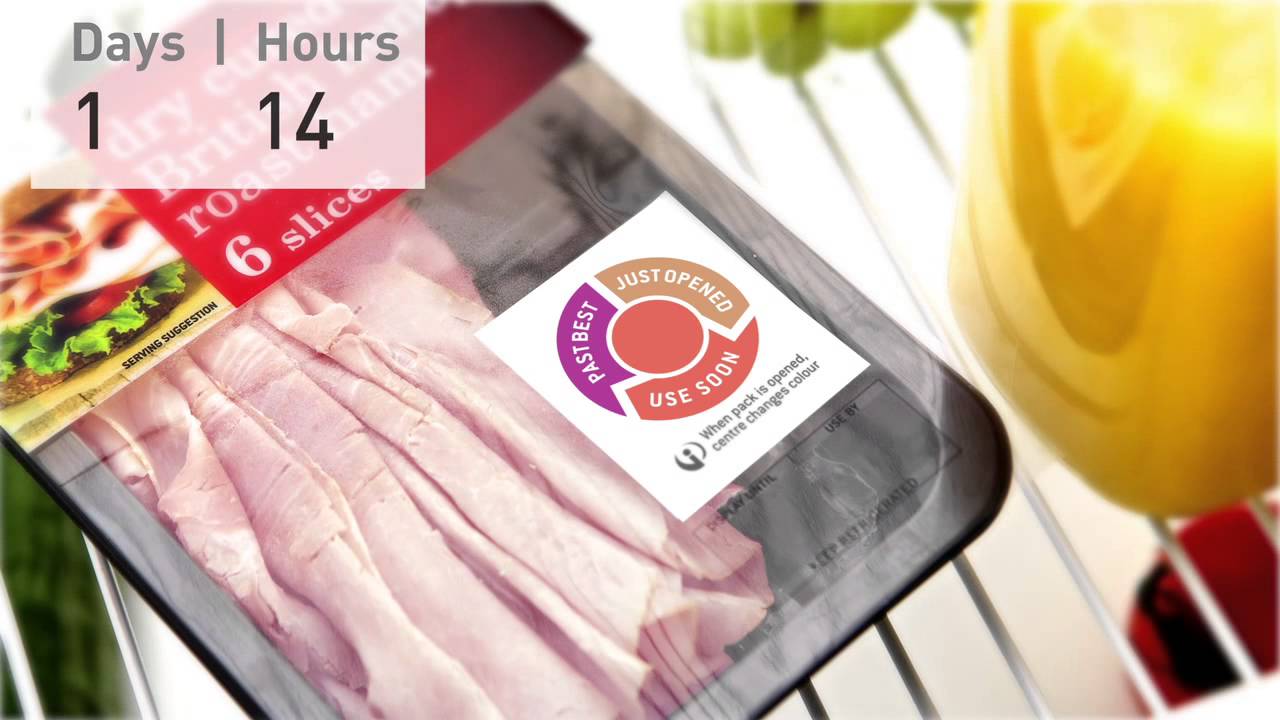
Recycling old packaging to make new packaging
London Bio Packaging, based in the UK capital, is another company making strides in producing more sustainable and economically friendly packaging. They produce two different types of packaging catering for consumer needs – Sustain and Revive.
The Sustain packaging is made from bio-plastic, which is comprised of polymers manufactured from biological sources, in this case plants, which are broken down and composted industrially to contribute to the growing of more plants and therefore cause no harm to the environment.
The Revive packaging range features a variety of containers forged from the recycling of old packaging. They are made from recycled polyethylene terephthalate (rPET), which is the most common plastic that is being recycled back into primary applications, rather than being down-cycled into lesser products.
London Bio Packaging provides a range of products that are made of more natural, eco-friendly materials which reduce the amount of harmful plastics used. Its method also increases the lifecycle of recyclable materials to minimise harmful landfill waste and the company’s carbon footprint.
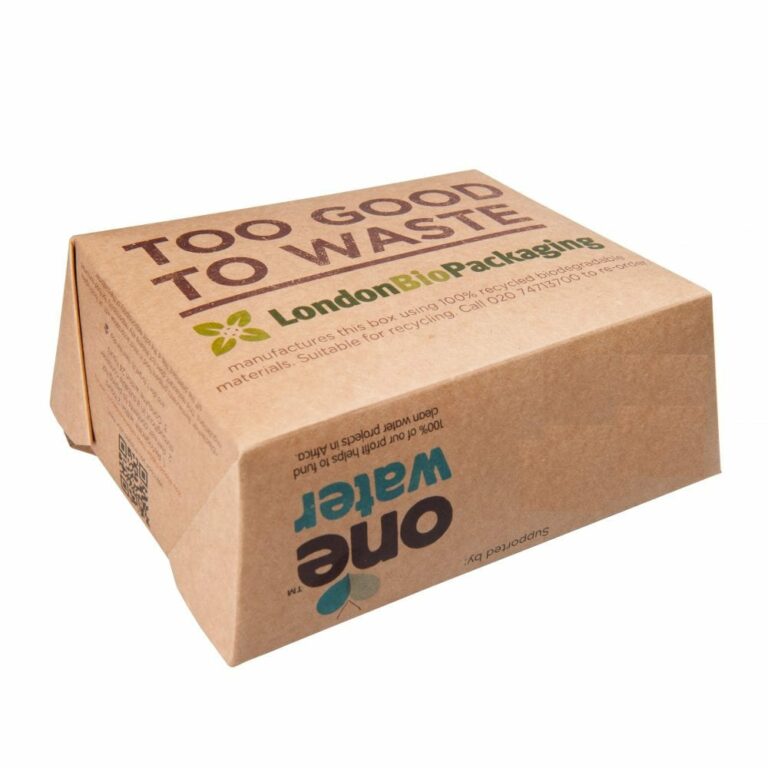
Improving performance
To increase the sustainability of the industry, it’s not just about reducing the direct environmental impact of the packaging. An alternative approach is to improve the performance of materials overall, so that they better protect products and lead to greater efficiencies. Inadequate packaging is far worse than overpackaging, because if the goods are damaged and need completely replacing, considerably more energy is used.
In fact, on average, less than 10%[9] of a product’s environmental impact comes from its packaging, so work should focus on the materials used across the whole supply chain, rather than just one section.
Aston Martin, for example, has teamed up with the University of Warwick to develop composites that will make its vehicles lighter and, as a result, more energy efficient.
Its Innovate UK-funded InterComp project is designed to manufacture compression moulded CFRP (carbon fibre reinforced polymer), which could help to reduce weight by up to 40%[10]. This not only improves the vehicle’s overall performance but will also mean less fuel is needed to power it, leading to a decrease in CO2 emissions. And, as composites are strong and durable, sustainability is improved with no compromise on quality.
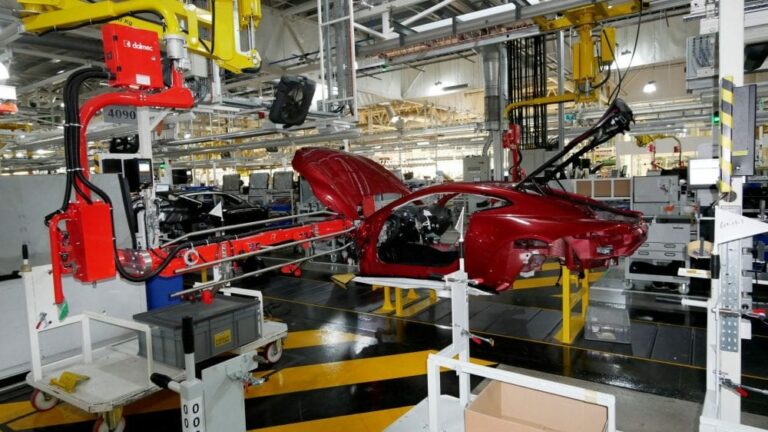
Another company using innovative materials to improve performance and increase sustainability is Whirlpool UK. The appliances manufacturer is now using Solstice Liquid Blowing Agents (LBA), which is a recent advancement in foam-blowing agent technology.
The use of LBA improves the level of insulation in refrigeration units, which ensures they are able to keep items chilled without using as much energy. It also has a lower global warming potential than traditional blowing agents, meaning fewer greenhouse gases are produced.
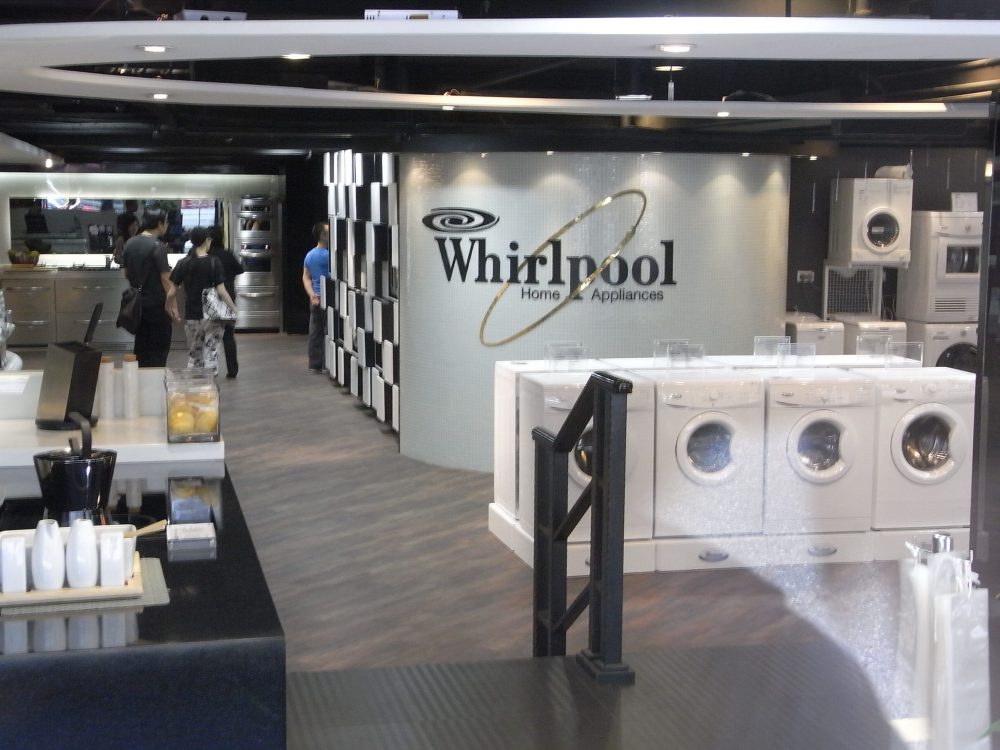
Future innovation
Intelligent materials and packaging can go a long way towards helping the UK tackle the plastic problem. The government’s recent investment in sustainable manufacturing indicates that it believes such innovations can help reduce the British industry’s environmental impact and companies like these are leading the way.
The UK, and the wider world, must develop new ways of packaging and producing goods to break the trend of damage to our planet.
Thankfully, research and development is underway all over the country, helping to guide UK industry to a more sustainable future.
Such innovations can qualify companies for the government’s R&D Tax Credit scheme, which allows eligible businesses to claim back up to 33% of their investment in research and development. The initiative is designed to encourage UK businesses to invest in innovation, so they can continue to help both the country and the world overcome substantial environmental challenges.
Innovative companies are playing their part to preserve our future. Speak to a member of our team to find out how we can support your business.
get in touch
